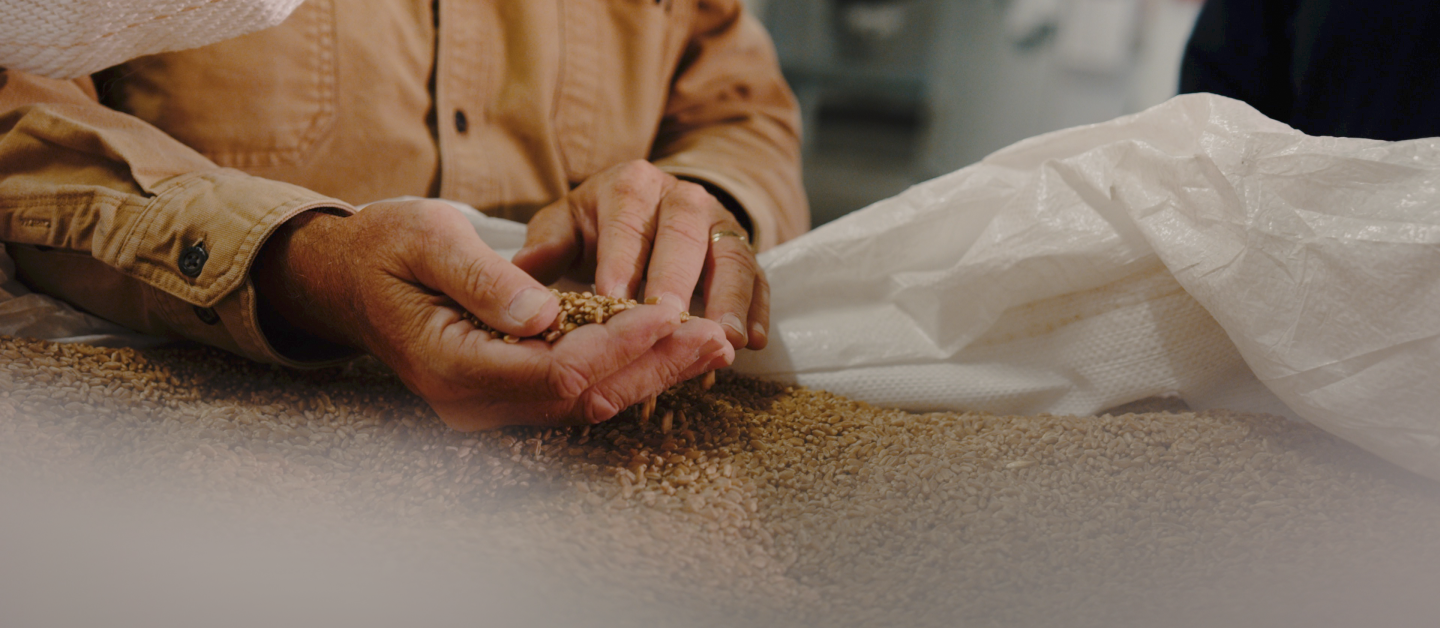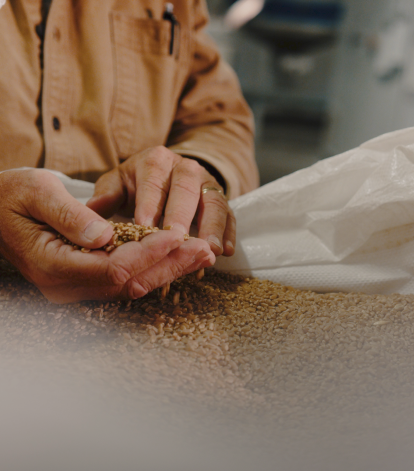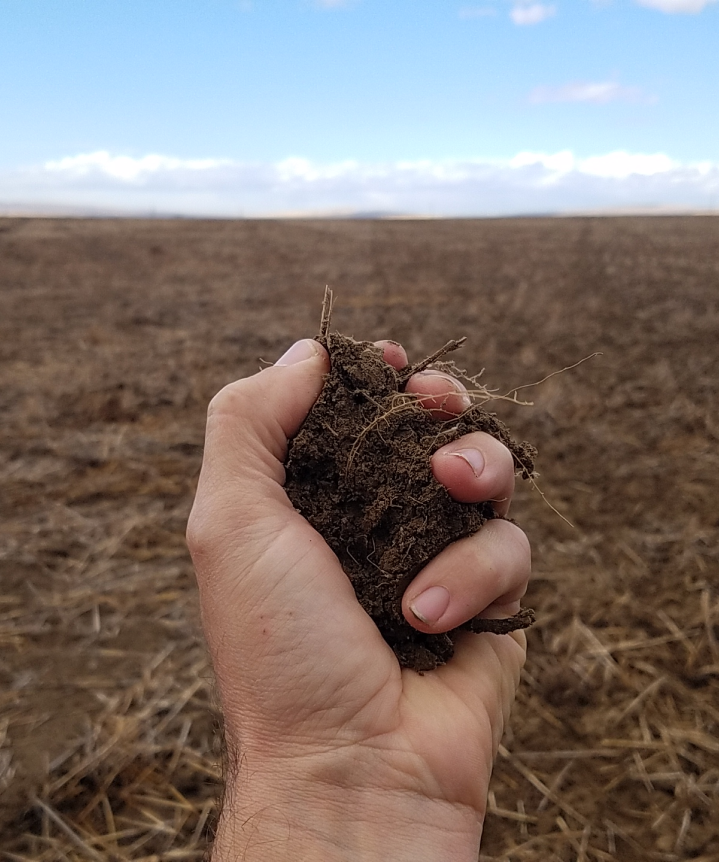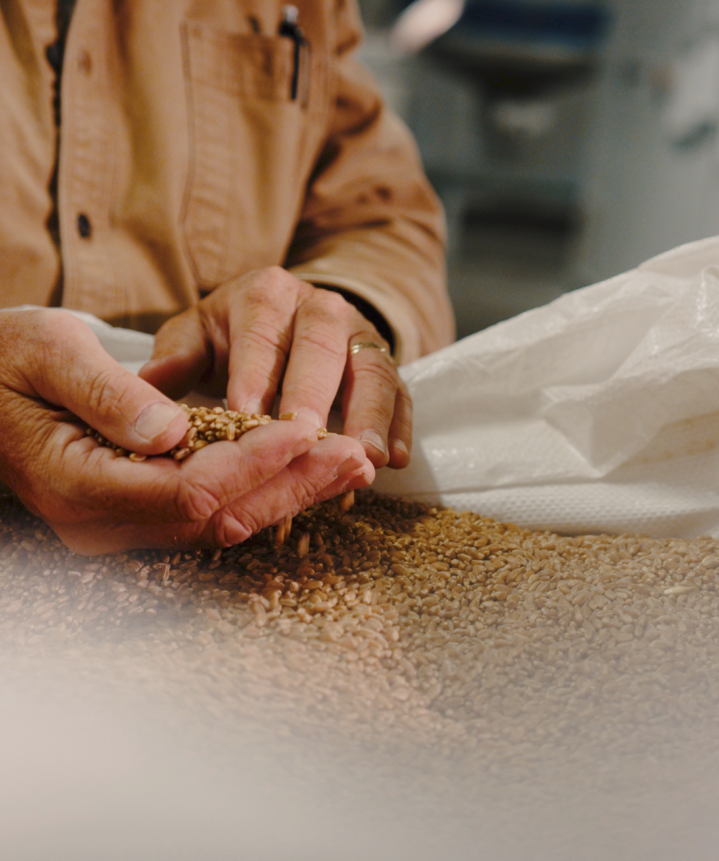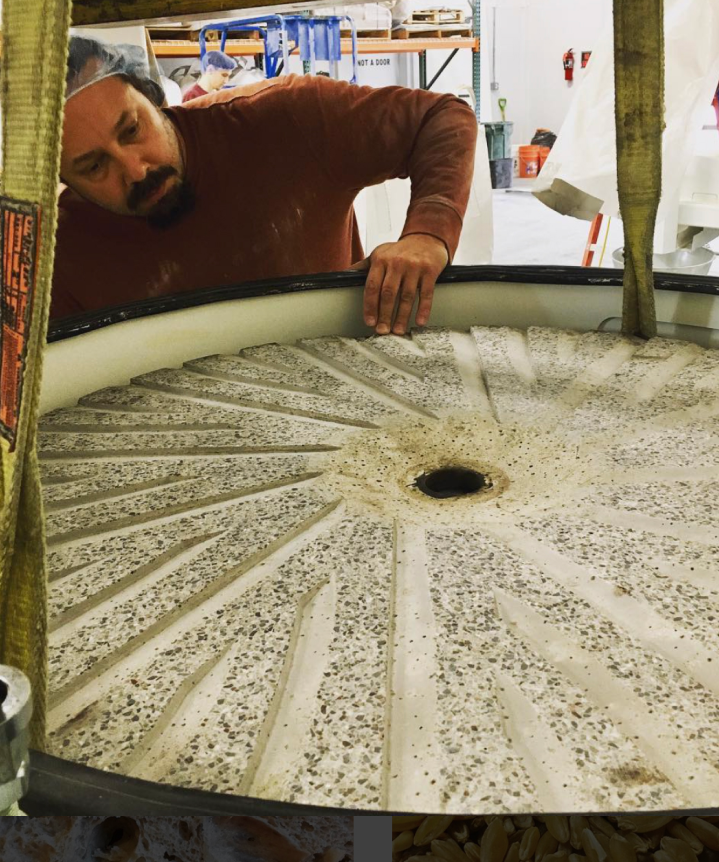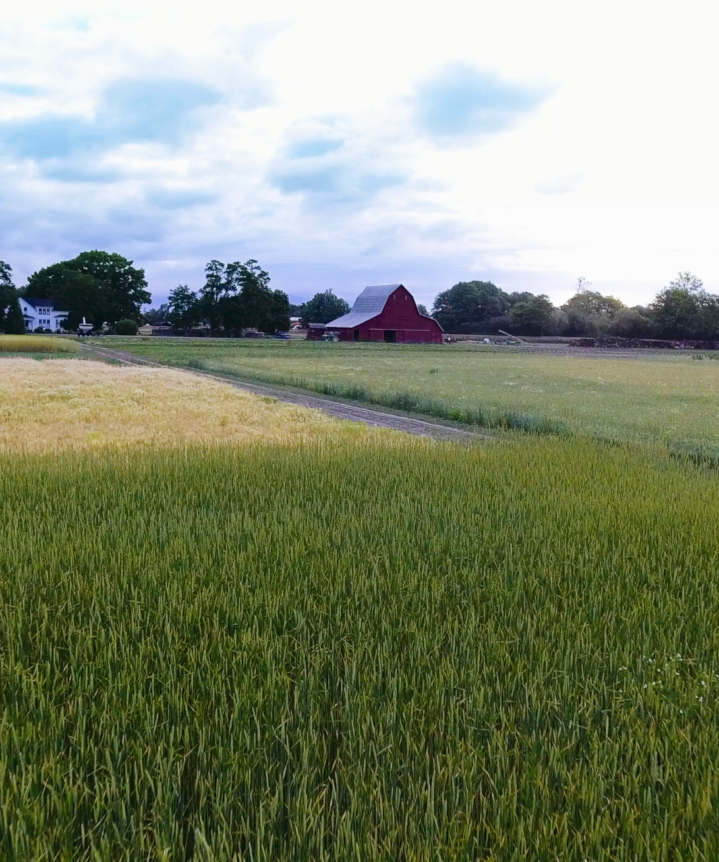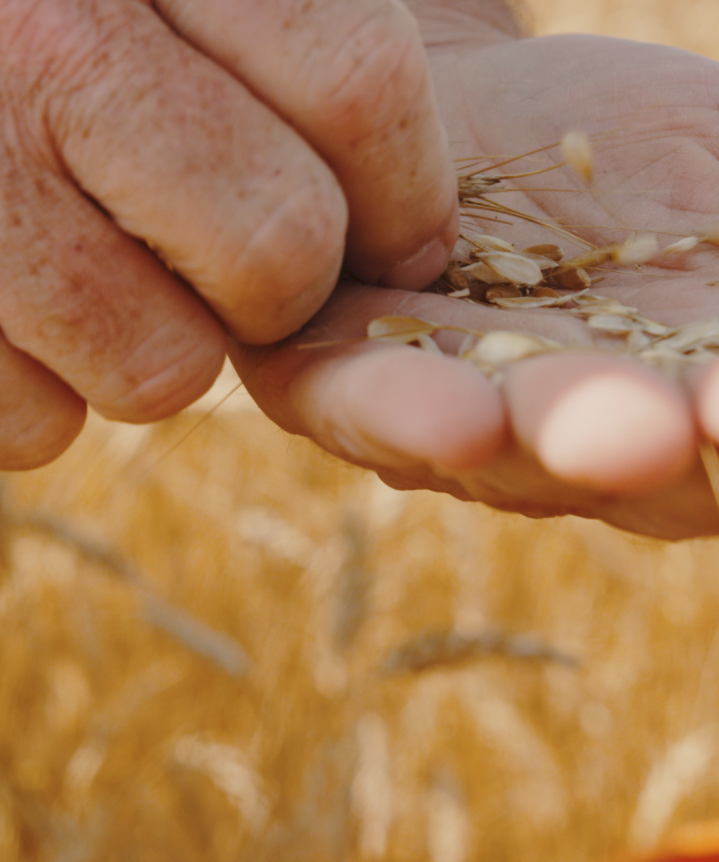
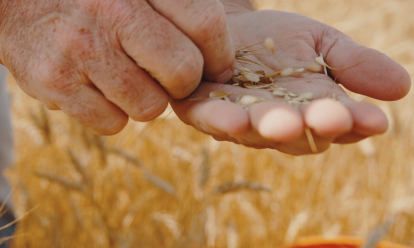
Select only the best varietals
We test every varietal of wheat used in our products for flavor and suitability to our soils, not just for yield or protein—the primary measure of quality in commodity grains. For example, our Organic Expresso flour is known to have terrific disease resistance, which is especially important in wetter climates such as ours. It also produces a dark, rich crust and a rustic, earthy crumb that is so useful in hearth loaves—it’s become our standard bearer for Organic Bread Flour. Another varietal with tremendous flavor, color and resilience is our Skagit 1109 flour, bred naturally by our neighboring Skagit County-based WSU Bread Lab to thrive in local soils.


